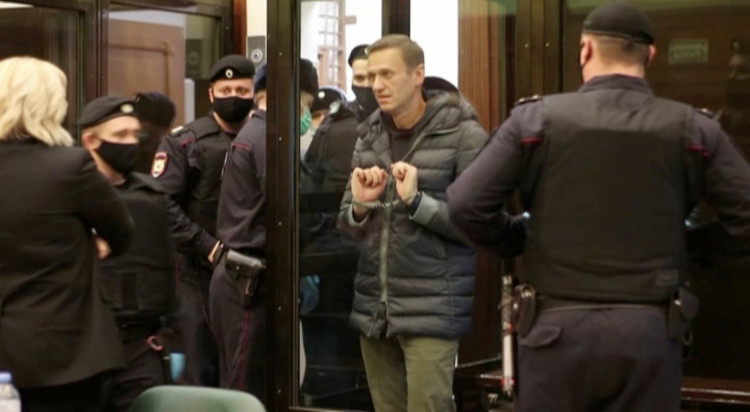Russian opposition leader Alexei Navalny was sentenced to two years and eight months in prison buy the Simonovsky District Court Tuesday.
The sentencing of Navalny over alleged violations of his 2014 conviction has sparked an international outcry, including calls for his release by several global leaders.
Navalny was originally handed down a three-and-half year sentence but the court reduced it as he had already served a year under house arrest. The court handed down the sentence despite protests erupting across the nation calling on Navalny's release.
Navalny's initial arrest sparked a large wave of protests across the country, resulting in thousands of people being arrested. Local media reports claimed that at least 5,000 people were arrested during the protests on Sunday, including 2,000 people in Moscow.
Canadian Prime Minister Justin Trudeau issued a statement and said that he "strongly condemns" the decision to put Navalny in prison. He also called on the Russian government to release Navalny and all of the demonstrators and journalists that were arrested during the recent protests.
U.S. Secretary of State Antony Blinken also issued a statement and said that the country and its allies will work to hold Russia accountable for violating the rights of its citizens. He added that the country's recent actions only served to show how it has abused the justice system for political purposes.
"We reiterate our call for the Russian government to immediately and unconditionally release Mr. Navalny, as well as the hundreds of other Russian citizens wrongfully detained in recent weeks for exercising their rights, including the rights to freedom of expression and of peaceful assembly," Blinken said.
British Foreign Secretary Dominic Raab echoed the sentiments of the other officials and said that the UK is also calling for the release of Navalny and the protesters. Raab said that the courts have wrongly punished the victim of a poisoning rather than find those that were responsible for the attempt on his life.
European Union foreign policy chief Josep Borrell said that the ruling was counter to Russia's commitment to adhere to the rule of law and protect people's fundamental freedoms.
Russian foreign ministry spokesperson, Maria Zakharova, said that other countries should stay out of the issue and "deal with their own problems."
"For the last few weeks we have been in a state of comments and responses to similar attacks and statements. You should not interfere in the internal affairs of a sovereign state," Zakharova said.





